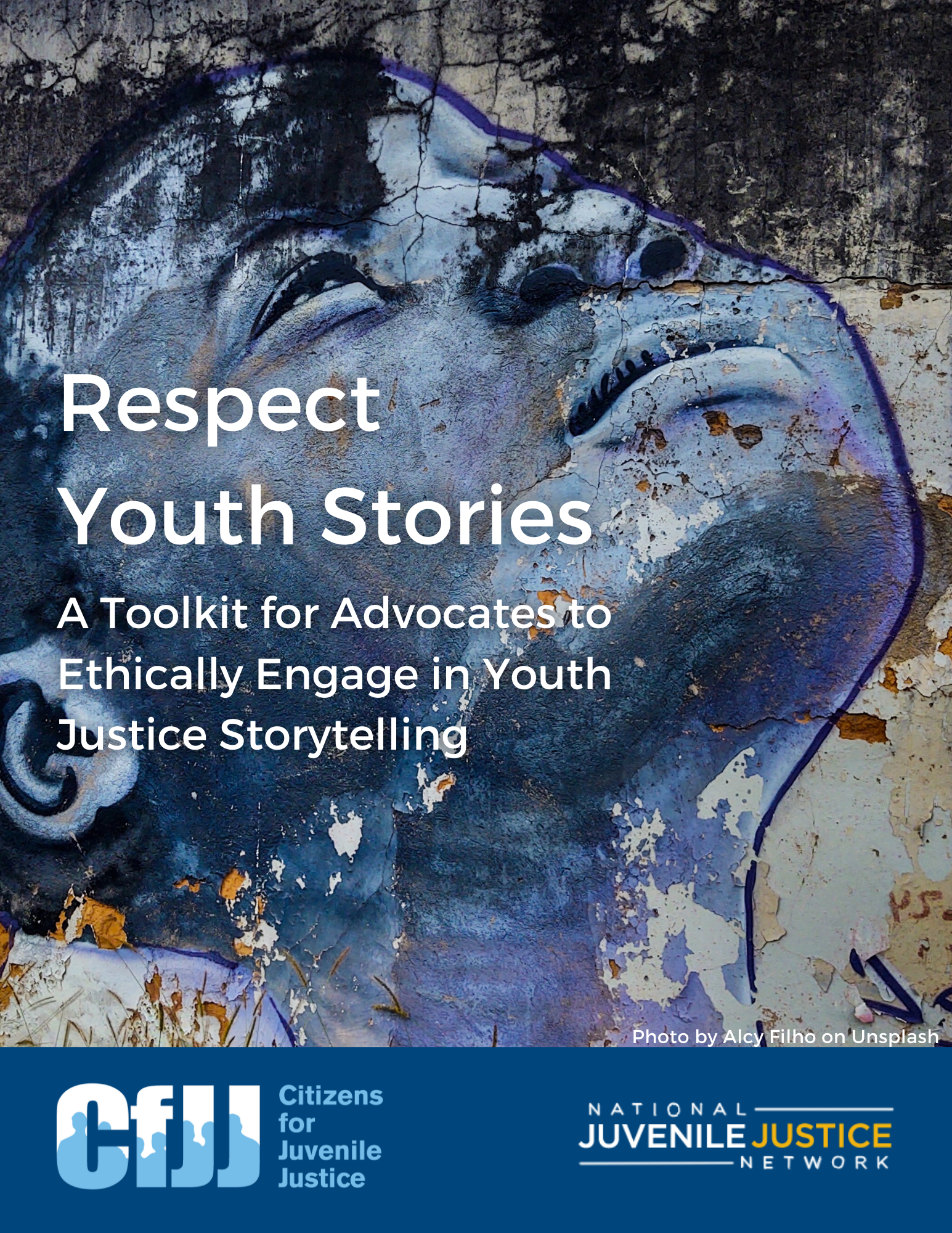Respect Youth Stories
A Toolkit for Advocates to Ethically Engage in Youth Justice Storytelling
December 2021
““I shared my story and I in many ways felt like it was, like I said before, that business approach. They wrote a dossier about it and filled out all sorts of papers and infographics about what happened to me, and how they could share my story, when in actuality, in hindsight now... I was purely disrespected.””
Citizens for Juvenile Justice, in collaboration with the National Juvenile Justice Network , partnered to create a toolkit titled, "Respect Youth Stories: A Toolkit for Advocates to Ethically Engage in Youth Justice Storytelling", to provide insight from young people on ways that advocates can ethically invite them to share their stories. Our primary aim in creating this toolkit is to assist advocacy organizations in establishing ethical and youth-informed practices for facilitating young people sharing their stories in public, including through the press, legislative testimony, digital media, publications, or panel discussions. We also hope reading this toolkit helps young people understand their right to establish boundaries while sharing their experiences in public.
It is critically important to establish an ethical approach to advocacy storytelling so that young people are not exploited or re-harmed in the process of sharing their experiences. This is especially true when dealing with youth and young adults who carry trauma from the systems we are working to change.
Steps Advocacy Organizations Must Take to Ethically Engage in Youth Justice Storytelling
Be clear about your intentions and maintain transparency throughout the process of gathering and sharing young people’s stories.
Ensure youth have agency in the storytelling process.
Understand and inform young people of the risks and benefits of sharing their stories, particularly if they have a pending legal case.
When facilitating an interview with the press, ensure youth are fully informed and help them prepare to share their story.
When asking young people to share their story as part of an advocacy campaign, build a relationship before asking them to share their story, and stay connected with them after the project is complete.
Ensure that young people feel seen, heard and respected.
Develop ongoing, professional relationships with youth.


